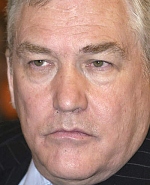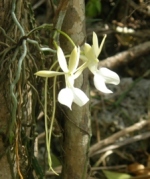Archive for December 6th, 2009

Conrad Black takes appeal to Supreme Court
 (The Guardian): The jailed press baron Conrad Black will get a last-ditch chance to win freedom as his lawyers try to persuade the US supreme court on Tuesday that the former Telegraph owner’s criminal convictions for embezzling $6.1m (£3.7m) amounted to misuse by prosecutors of a controversial fraud law. Black, 65, who is serving a six-and-a-half-year sentence at Florida’s Coleman prison, will not be at the Washington hearing in person. But to have his case heard by the supreme court is a coup – the judges only grant oral hearings to about 100 of the 10,000 petitions they receive annually.
(The Guardian): The jailed press baron Conrad Black will get a last-ditch chance to win freedom as his lawyers try to persuade the US supreme court on Tuesday that the former Telegraph owner’s criminal convictions for embezzling $6.1m (£3.7m) amounted to misuse by prosecutors of a controversial fraud law. Black, 65, who is serving a six-and-a-half-year sentence at Florida’s Coleman prison, will not be at the Washington hearing in person. But to have his case heard by the supreme court is a coup – the judges only grant oral hearings to about 100 of the 10,000 petitions they receive annually.

Mac to sell Cayman in Asia
 (CNS): Hitting out at those who have criticized him over the recent road show to promote the Cayman Islands overseas, Premier McKeeva Bush has said that it was an essential trip and he intends to do more, particularly in Asia. He slammed the previous administration’s decision not to establish a presence there, which he said had put Cayman behind, but he intended to continue going on the road to promote Cayman. Warning that the island faced heavy competition for business, he said travelling overseas would be an important part of the government’s strategy to regain foreign investment.
(CNS): Hitting out at those who have criticized him over the recent road show to promote the Cayman Islands overseas, Premier McKeeva Bush has said that it was an essential trip and he intends to do more, particularly in Asia. He slammed the previous administration’s decision not to establish a presence there, which he said had put Cayman behind, but he intended to continue going on the road to promote Cayman. Warning that the island faced heavy competition for business, he said travelling overseas would be an important part of the government’s strategy to regain foreign investment.
Speaking in the Legislative Assembly last week, Bush said the road show was to promote the Cayman Islands as an attractive jurisdiction to investors and as a first choice for financial entities. He said the delegation also promoted the role of CIMA, the islands’ regulatory environment, as well as the legal system and the new financial division of the courts.

Stolen emails used to ridicule global warming
 (Independent): Russian computer hackers are suspected of being behind the stolen emails used by climate sceptics to discredit the science of global warming in advance of tomorrow’s Copenhagen climate negotiations, the United Nations’ deputy climate chief said yesterday. "This was not a job for amateurs," said Professor Jean-Pascal van Ypersele, vice-chairman of the UN Intergovernmental Panel on Climate Change (IPCC), referring to the theft of the emails from the Climatic Research Unit of the University of East Anglia (UEA). The allegation comes amid a series of rows that have overshadowed the start of the Copenhagen talks.
(Independent): Russian computer hackers are suspected of being behind the stolen emails used by climate sceptics to discredit the science of global warming in advance of tomorrow’s Copenhagen climate negotiations, the United Nations’ deputy climate chief said yesterday. "This was not a job for amateurs," said Professor Jean-Pascal van Ypersele, vice-chairman of the UN Intergovernmental Panel on Climate Change (IPCC), referring to the theft of the emails from the Climatic Research Unit of the University of East Anglia (UEA). The allegation comes amid a series of rows that have overshadowed the start of the Copenhagen talks.

Eco bill to go back to public
 (CNS): The environment minister has said he will be listening to all the concerns regarding the content of the proposed National Conservation Bill but that the Cayman Islands must put environmental legislation in place. Speaking at the Third National Climate Change Workshop last week, Mark Scotland said sacrifices would have to be made to protect Cayman for the future. He added that he would get the bill, which has faced considerable opposition, back on track but it did not mean that developers would be persecuted.
(CNS): The environment minister has said he will be listening to all the concerns regarding the content of the proposed National Conservation Bill but that the Cayman Islands must put environmental legislation in place. Speaking at the Third National Climate Change Workshop last week, Mark Scotland said sacrifices would have to be made to protect Cayman for the future. He added that he would get the bill, which has faced considerable opposition, back on track but it did not mean that developers would be persecuted.
“I know the bill is applauded by some and denounced by others, which is why we will go into 2010 with a vigorous public outreach campaign. This will once more give people a chance to understand, discuss and comment on the bill’s provisions. I give the undertaking today that we will make every effort to hear all parties and take on board every concern,” he told local and regional delegates gathered at the Marriot for the regional climate change conference on Thursday 3 December,, a few days before the UN conference in Denmark.
While he observed Cayman’s limited ability to impact the global fight on climate change he said people in Cayman needed to understand that the time had come to make sacrifices to protect the Islands for future generations. He said that he wanted his children and their children beyond to be able to walk Seven Mile Beach, kayak in the North Sound mangroves and catch their own lobster and conch.
“Protecting the environment needn’t equate to persecuting developers,” the minister said. "It simply means that you give equal weightto both positions.”
Scotland noted that were it not for the vision and sacrifice of past generations, Cayman would not have the marine parks and protected areas today that had resulted in stable – and even in some instances growing – populations of conch, whelk and lobster.
“Closing down the grouper spawning areas years ago was not necessarily met with joy, but because the bullet was bit and action taken, our children’s children may yet be able to catch a fair-sized grouper in the future,’ he said, noting the critical situation of the local grouper after historic overfishing.
“Protecting the environment is not synonymous with preventing development. It in contrast ensures that growth is in fact sustainable. For rest assured, unless we safeguard the integrity of our natural resources, we will certainly be sounding the death-knell for these Islands," Scotland warned. “We simply must have comprehensive and updated environmental protection legislation.”
He explained that the National Conservation Bill would cover the provisions of the United Nations Framework Convention on Climate Change and the Kyoto Protocol.
“The law will protect natural areas such as forests that are critically important to absorb the excess greenhouse gases produced by man. It will also provide a framework for relevant environmental impact assessments that will take account of climate change impacts," Scotland stated.
Premier McKeeva Bush noted Cayman’s vulnerability to climate change because of it size, narrow economic base, limited natural resources and history of natural disasters, and said government understood the delicate balance between development and the natural environment. “Our country has faced this issue repeatedly over the last 20 to 30 years, but more-so during the last decade which has witnessed exponential growth in population, services, and the accompanying infrastructure,” Bush said in his opening remarks to the workshop.
Having said that, he then pointed out the need to continue with development in order for the country to remain competitive. “We cannot hope to grow further or remain competitive without continuously implementing developmental initiatives,” Bush stated noting that it had to be sustainably managed. “It is a challenge, but one over which I believe we can prevail, provided we adopt the correct approach," the premier added.

How to shop safely online this Christmas
 (The Telegraph): The Christmas shopping season is in full swing, but it’s not just the likes of Amazon rubbing their hands with glee; Christmas is a gift for hackers and fraudsters. Buying your Christmas gifts online is undoubtedly more convenient than joining the huge crowds at your local shopping centre. It also gives consumers an opportunity to make really informed purchases, and get what they’re looking for at the best price. By following a few simple golden rules, it is possible to shop safely online and still bag a bargain, all the while ensuring that the season of goodwill doesn’t extend to cybercriminals and fraudsters.
(The Telegraph): The Christmas shopping season is in full swing, but it’s not just the likes of Amazon rubbing their hands with glee; Christmas is a gift for hackers and fraudsters. Buying your Christmas gifts online is undoubtedly more convenient than joining the huge crowds at your local shopping centre. It also gives consumers an opportunity to make really informed purchases, and get what they’re looking for at the best price. By following a few simple golden rules, it is possible to shop safely online and still bag a bargain, all the while ensuring that the season of goodwill doesn’t extend to cybercriminals and fraudsters.